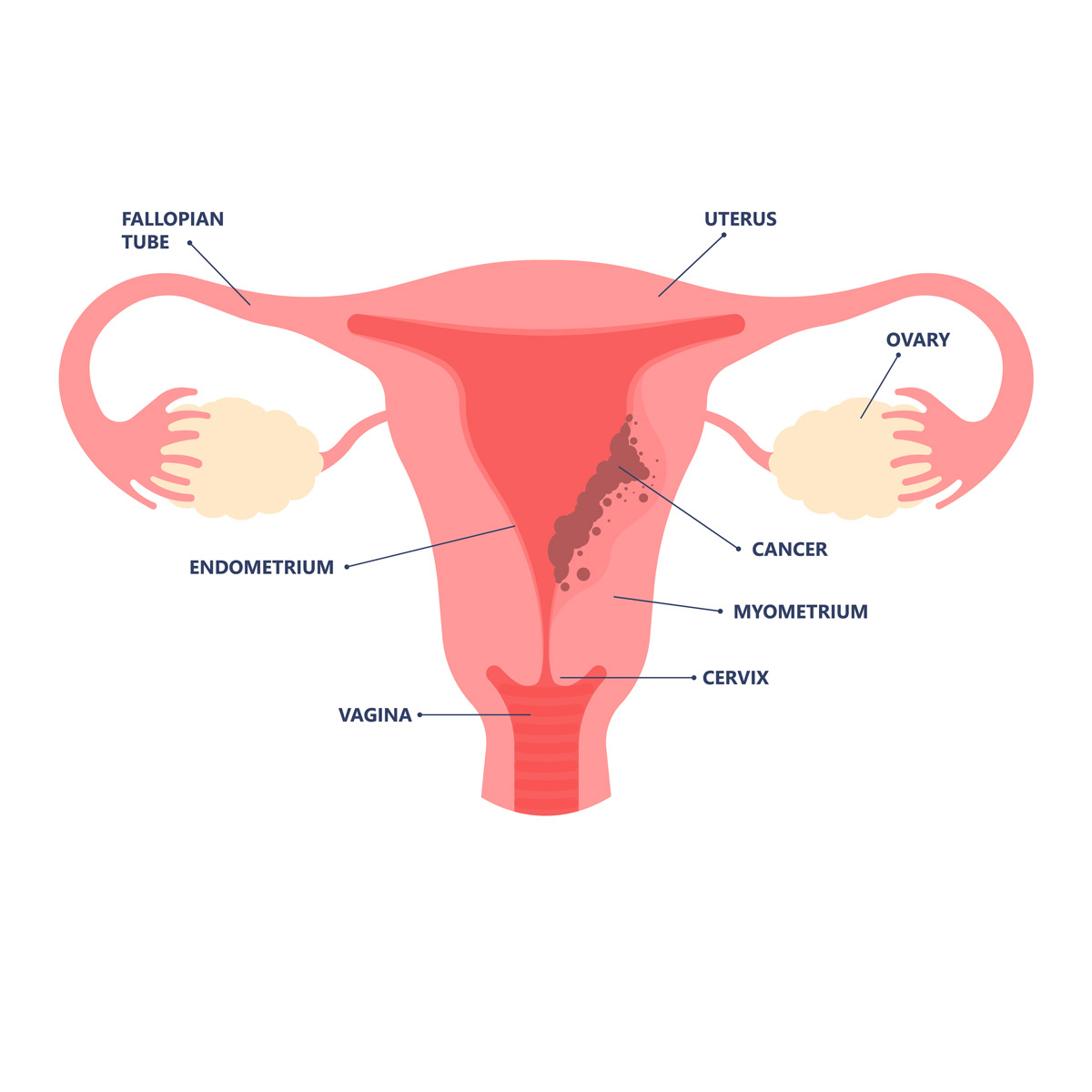
Endometrial cancer


Overview
Endometrial cancer occurs within the uterus (hollow cavity compose of muscle in the pelvic area where fetus develops). Endometrial cancer develops in the endometrium, the inner lining of the uterus. Certain times, it is known as uterine cancer.
As endometrial cancer causes unusual bleeding from the vagina therefore it can be detected at the first stage. When endometrial cancer is found in early stage, surgical removal of the uterus tends to cure the cancer.
Causes
The definite causes of endometrial cancer are unknown. The mutation of endometrial cell causes uncontrolled duplication resulting in forming a mass of cells also known as a tumor. This tumor then begins to invade and destroy the normal cell. These cells have the tendency to metastasize (spread to other parts of the body).
Risk factors
- Hormonal imbalances: The ovaries are responsible for producing two female hormones; estrogen and progesterone. When the balance in these hormones fluctuates, changes in the endometrium occur. A risk of developing endometrial cancer arises from a high level of estrogen. This may occur with irregular ovulation patterns, which may found in polycystic ovary syndrome, obesity and diabetes. The intake of estrogen hormones after reaching menopause can put a patient at higher risk of getting endometrial cancer.
When a rare type of tumor in the ovaries release estrogen, the risk of developing endometrial cancer increases.
- Early menarche or late menopause: Having menstruation at an early age or before age 12 years old or reaching menopause late increase the chance of getting endometrial cancer.
- Women who have never been pregnant: When a person has never conceived, she has a higher chance of developing endometrial cancer.
- Aging: Older age, puts people at risk of getting endometrial cancer. The disease tends to occur after menopause.
- Being obese: Excess level of body fats may cause increase estrogen level and the higher the estrogen may increase risk of endometrial cancer.
- Breast cancer hormonal therapy: Tamoxifen is hormone therapy medication that increases the risk of endometrial cancer. Generally, the benefits of tamoxifen dominate the minor risk of endometrial cancer.
- Hereditary colon cancer syndrome: Also known as Lynch syndrome. This syndrome increases the risk of colon cancer and other cancers such as endometrial cancer due to gene mutation. If a patient has been diagnosed with Lynch syndrome, consultation on what cancer screening tests is necessary is required.
Symptoms
- Postmenopausal vaginal bleeding
- Vaginal bleeding between periods
- Lower abdominal pain or pelvic pain























